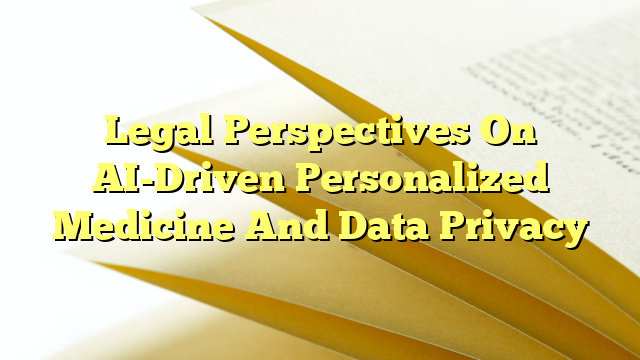Table of Contents
Legal Perspective of Artificial Intelligence
Artificial intelligence (AI) has rapidly advanced in recent years, raising various legal concerns. From a legal perspective, AI is a complex field that requires careful consideration of existing laws and regulations. It is important to understand the legal implications of AI in order to navigate the evolving landscape.
One of the key legal considerations of AI is the potential impact on liability. As AI systems become more autonomous and make decisions that affect individuals, questions arise regarding who should be held responsible for any harm caused by AI. This issue is particularly relevant in the context of AI-driven personalized medicine, where AI algorithms are used to make treatment recommendations.
Additionally, intellectual property rights play a significant role in the legal perspective of AI. AI technologies often involve the use of algorithms, data, and models that may be subject to copyright, patent, or trade secret protection. It is essential for organizations to understand and address these intellectual property considerations when developing and deploying AI systems.
Legal Privacy and Ethical Considerations of Artificial Intelligence
Privacy is a major concern in the age of AI. The collection and analysis of vast amounts of personal data raise significant privacy issues. AI systems rely on data to train their algorithms and make predictions, which can involve sensitive personal information. It is crucial for organizations to comply with applicable data protection laws and ensure the ethical use of personal data.
Ethical considerations also come into play when it comes to AI. The use of AI in decision-making processes, such as in healthcare or finance, raises questions about fairness, transparency, and accountability. It is important to address these ethical concerns to ensure that AI is used in a responsible and unbiased manner.
Main Legal Issues with AI
There are several key legal issues that arise in relation to AI. One of the main concerns is the potential for discrimination. AI algorithms can inadvertently perpetuate biases if they are trained on biased data or if the underlying algorithms are flawed. This can have significant legal implications, particularly in areas such as hiring, lending, and criminal justice.
Another legal issue is the protection of intellectual property rights. As mentioned earlier, AI technologies often involve the use of proprietary algorithms, data, and models. Organizations must ensure that they have the necessary rights and licenses to use these intellectual property assets, and they must also be aware of any potential infringement claims.
Data Privacy Concerns with AI
Data privacy is a major concern in the context of AI. The collection, storage, and analysis of personal data by AI systems can raise significant privacy risks. Organizations must comply with applicable data protection laws, such as the General Data Protection Regulation (GDPR) in the European Union, and implement appropriate security measures to protect personal data.
Furthermore, the use of AI in healthcare and personalized medicine raises specific data privacy concerns. AI algorithms require access to large amounts of medical data to make accurate predictions and recommendations. Ensuring the privacy and security of this sensitive medical information is crucial to maintain patient trust and comply with legal requirements.
Conclusion
In conclusion, the legal perspective of artificial intelligence involves various considerations, including liability, intellectual property, privacy, and ethics. It is important for organizations to understand and address these legal issues to ensure the responsible and lawful use of AI technologies. Data privacy concerns are particularly significant in the context of AI-driven personalized medicine, where the collection and analysis of personal data play a central role.

